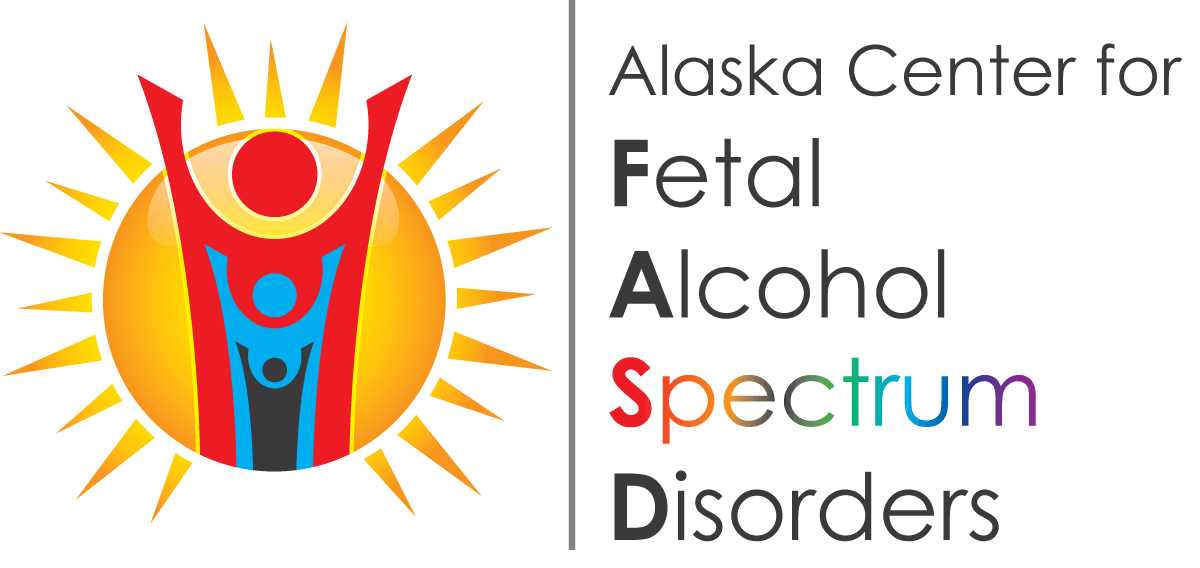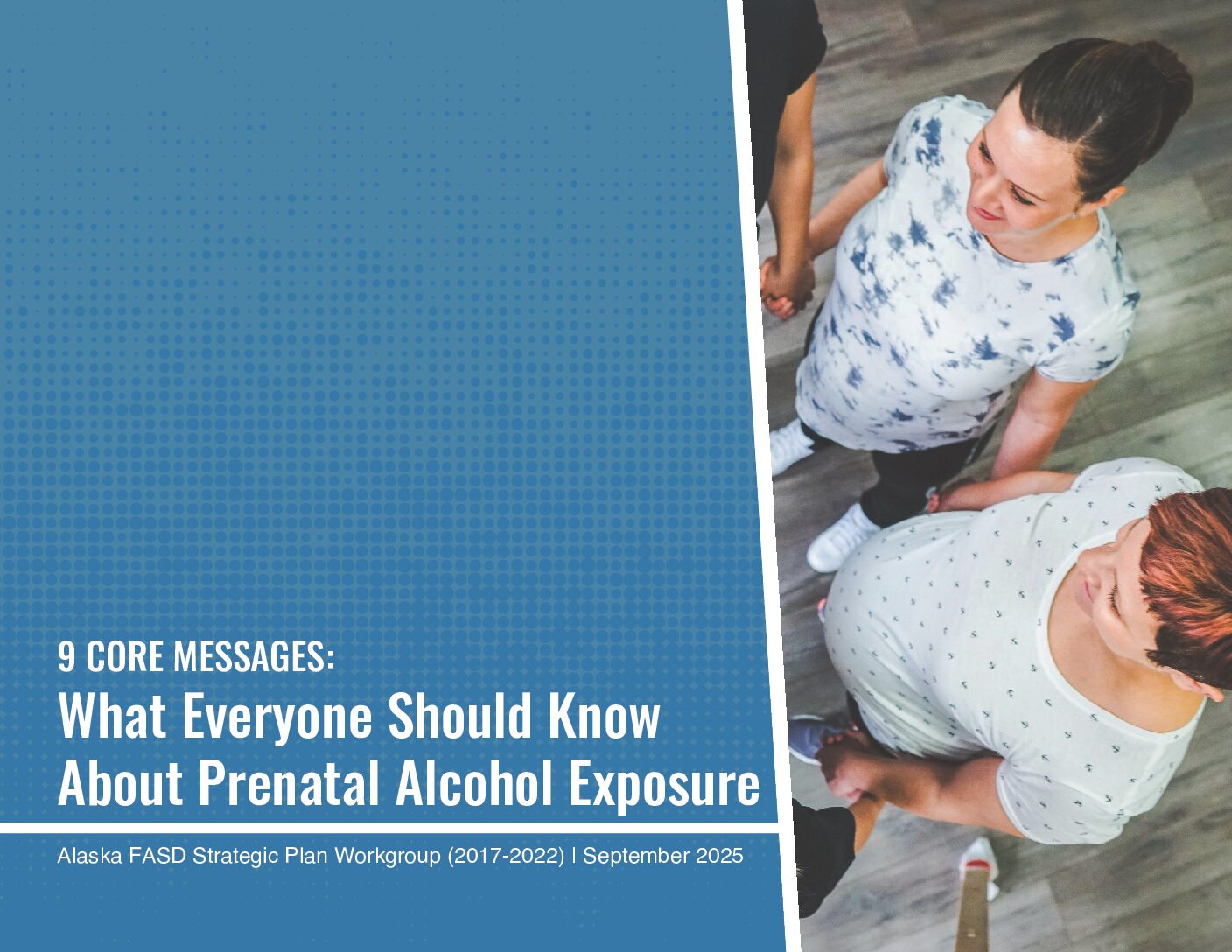9 Core Messages:
What Everyone Should Know About Prenatal Alcohol Exposure
Excerpt from Alaska FASD Strategic Plan Workgroup (2017-2022) | September 2022
- DEFINITIONS Prenatal Alcohol Exposure (PAE) is exposure to alcohol1 before birth. Fetal Alcohol Spectrum Disorders (FASD) are a range of diagnoses that can result from prenatal alcohol exposure. *The term fetal alcohol effects (FAE) has been replaced with the term FASD
- FASD IS A BRAIN-BASED DISABILITY Brain-based disabilities are not always physically visible. Prenatal alcohol exposure most commonly impacts the brain, which regulates behavior, judgment, memory, learning, emotions, attention, impulse control, and understanding cause and effect.
- PHYSICAL IMPACTS Most people with prenatal alcohol exposure have no outward physical characteristics, but have hidden impacts to the brain and other organs and structures
- COMMON CHARACTERISTICS ACROSS THE SPECTRUM: STRENGTHS & CHALLENGES People with PAE/FASD can experience a wide range of challenges and strengths that vary from individual to individual.
- IMPORTANCE OF DIAGNOSIS AND EARLY INTERVENTION Recognizing prenatal alcohol exposure early increases the likelihood a person with an FASD will have access to appropriate supports that promote a balanced, manageable, and successful life. Diagnosis and early intervention help prevent more serious and costly problems later on.
- PREVALENCE In Alaska, the prevalence of fetal alcohol syndrome, one of the diagnoses on the FASD spectrum is estimated to be 1.7 per 1,000 live births, about 10% of the total FASD diagnoses. Prevalence for the other 90% diagnosed is estimated to be 65 per 1,000
- STRATEGIES FOR SUCCESS There is no one-size-fits-all approach for working with people with prenatal alcohol exposure. Each person is impacted differently, which requires an individualized and lifelong approach
- PREVENTION Promote universal alcohol screening at medical appointments and education about the impacts of drinking alcohol during pregnancy. Access to treatment and services are essential for prevention.
- ADVOCACY Advocacy is needed to raise awareness, promote education, identification, and access to services. People with prenatal alcohol exposure often go undiagnosed and untreated because of misdiagnosis, stigma related to alcohol, and the hidden nature of the disability.


